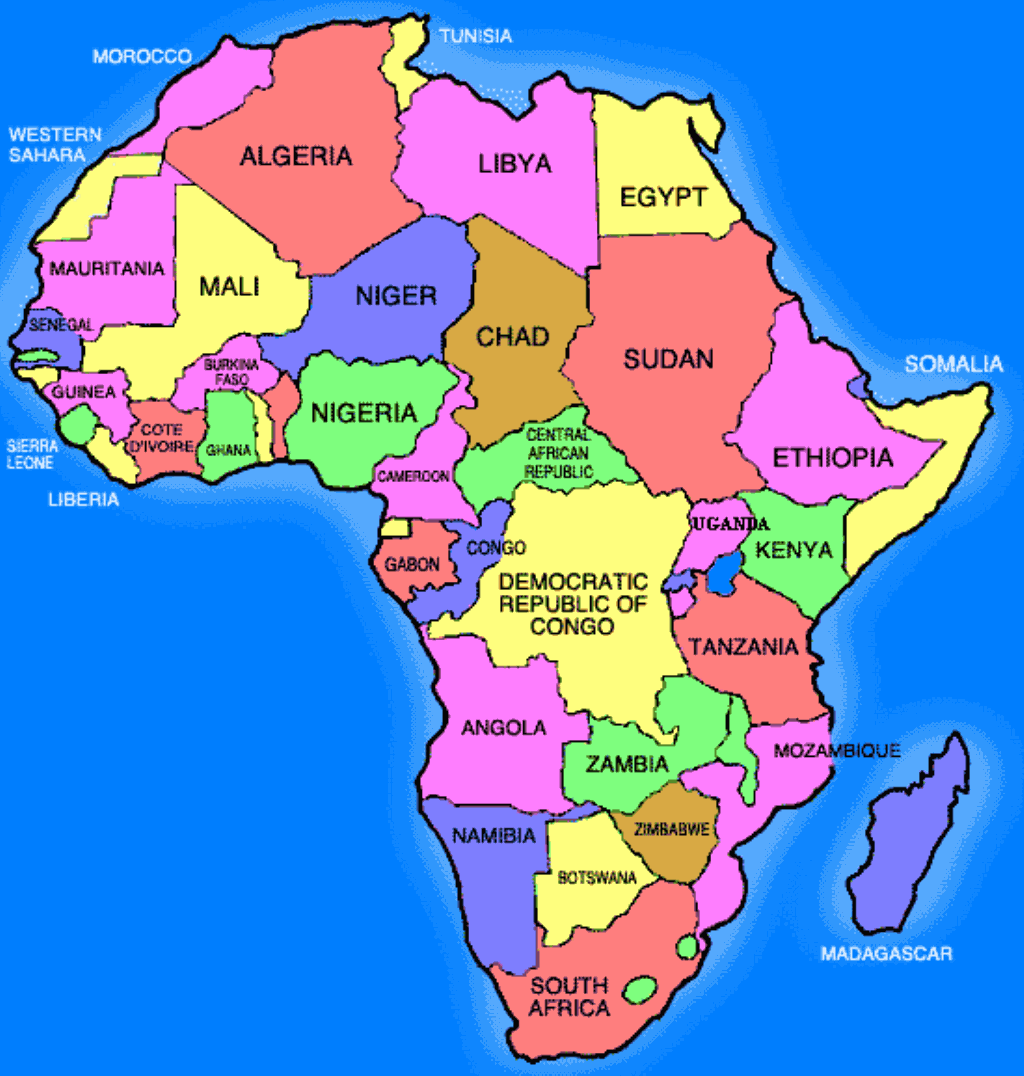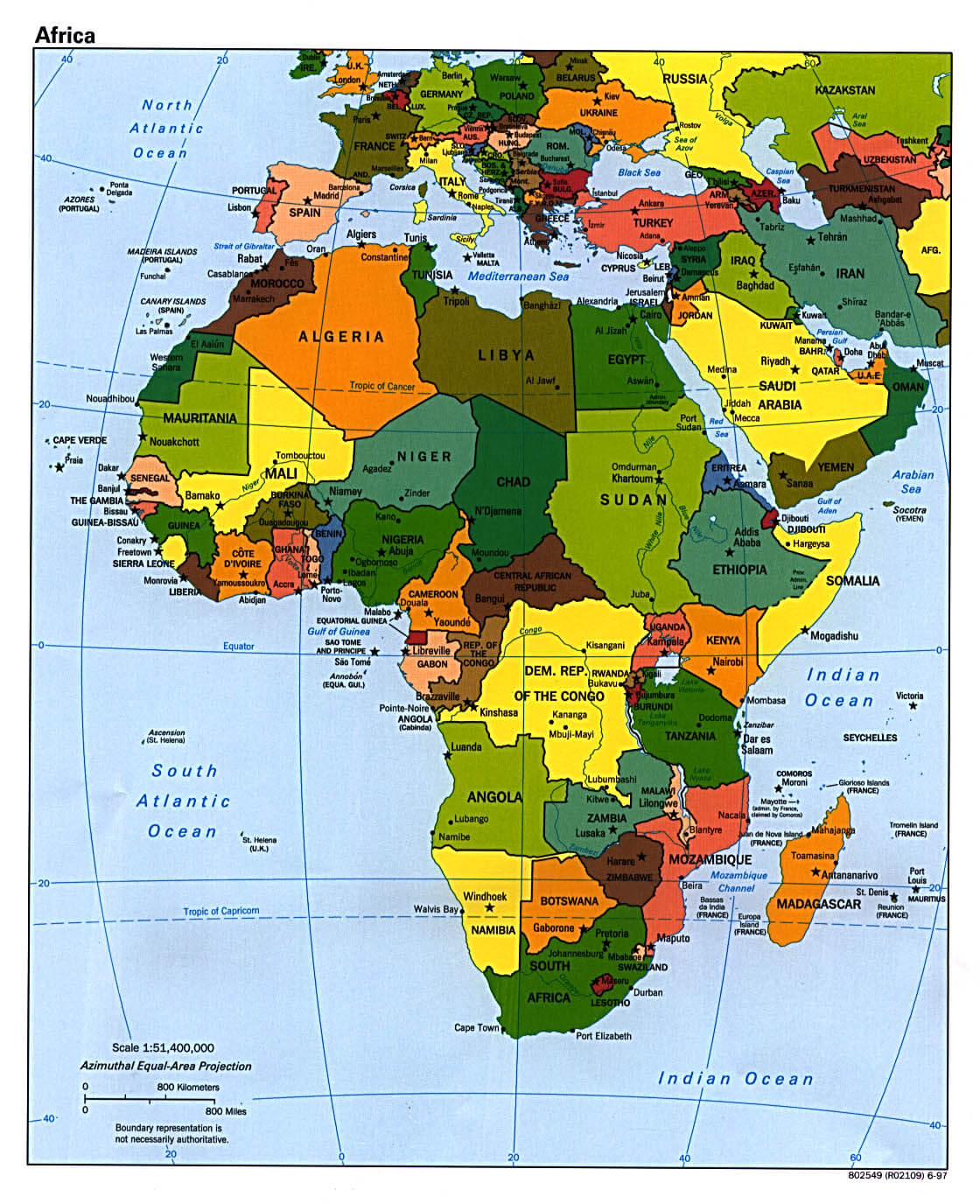Have you ever wondered, or perhaps heard someone ask, "is Africa the biggest country?" It's a question that pops up quite a bit, and it truly gets to the heart of how we think about our world's geography. Many people, you know, might picture Africa as one giant nation, but the truth is actually far more interesting and, frankly, much grander.
So, let's clear things up right away: Africa isn't a single country. Not at all. It's a massive continent, a truly diverse landmass that holds an incredible array of different nations, cultures, and landscapes. In some respects, thinking of it as one country really undersells its immense size and the rich variety found within its borders.
Today, we're going to take a closer look at this common query, exploring why it's a bit of a misconception and what makes Africa such a remarkable part of our planet. We'll talk about its sheer scale, the many countries that call it home, and the vibrant progress happening across this incredible continent, which is, to be honest, undeniable.
- Womens Light Pink Ballet Pointe Shoes Sugar Plum
- Horror Film Posters
- Wood Shelf Fantasy Art
- Religious Birthday Greetings
- Country Wallpapers
Table of Contents
- Africa: A Continent of Many Nations
- The Sheer Size of the African Continent
- A Continent on the Rise: Development and Innovation
- Common Questions About Africa, Answered
- Exploring Africa's Richness
Africa: A Continent of Many Nations
When people ask, "is Africa the biggest country?", it usually comes from a place of not quite grasping the sheer scale of this landmass. It's a pretty common misunderstanding, but the simple truth is that Africa is a continent, the second largest in the world, in fact. It's a sprawling piece of land, home to a vast number of independent nations, each with its own unique identity, history, and people.
Think of it like this: just as Europe isn't one country, or Asia isn't one country, Africa is a collection of distinct states. This distinction is really important, you know, because it helps us appreciate the incredible diversity that exists within its borders. It’s not a single entity with one government or one set of rules; it’s a mosaic of different societies, languages, and traditions, which is actually quite amazing.
Understanding Continental Scale
To truly grasp the concept of Africa as a continent, it helps to put its size into perspective. It's so much bigger than many people imagine, often appearing smaller on flat maps due to projection distortions. In reality, you could fit the United States, China, India, and a good chunk of Europe inside Africa, and there would still be room left over. That's how big it is, so it's almost hard to picture it as one country.
- Jakara Mitchel
- Great Pyrenees Australian Shepherd Mix
- Wood Trellis 90 Inch
- Toddler Running Png
- I Love Atsushi
This immense size naturally leads to a huge variety in everything from climate zones to ecosystems. From vast deserts to lush rainforests, towering mountains to expansive savannas, Africa contains a bit of everything. This geographic diversity, you see, plays a significant role in shaping the different cultures and ways of life across the continent, making each nation truly special.
How Many Countries Are in Africa?
Currently, the African continent is home to 54 recognized countries. Yes, that's right, 54! Each of these nations has its own flag, its own government, its own distinct legal system, and, in many cases, its own currency. This number alone, you know, really highlights why the idea of Africa being a single country just doesn't quite fit.
These countries range widely in size and population. For instance, Algeria is the largest country by land area, stretching across a huge part of North Africa, while Seychelles, an island nation, is one of the smallest. This variety, you know, is a really strong indicator of the continent's complex and rich political geography, which is something quite fascinating to explore.
The Sheer Size of the African Continent
The question "is Africa the biggest country" often stems from a lack of appreciation for its true physical dimensions. Africa is truly enormous, covering approximately 30.3 million square kilometers (11.7 million square miles). This makes it the second-largest continent by land area, trailing only Asia. To be honest, its vastness is something that truly surprises many people once they look at a proper, undistorted map.
This immense size means that traveling from one end of Africa to another can be like crossing multiple continents in other parts of the world. For example, the distance from Cairo in Egypt to Cape Town in South Africa is roughly equivalent to the distance from London to New York and back again. So, it's pretty clear that it's far too big to be just one country, don't you think?
Comparing Africa to Other Landmasses
Let's put Africa's size into even more perspective. As I mentioned, you could fit several major countries within its boundaries. Consider these comparisons, for instance:
- The United States, China, and India combined could fit comfortably within Africa.
- All of Eastern Europe, Western Europe, Central Europe, and Southern Europe could be placed inside Africa, with room to spare.
- Japan, Germany, Italy, India, the United Kingdom, France, Spain, and Switzerland could all fit into Africa at the same time, and you'd still have plenty of space left over.
This really helps to illustrate just how vast the continent is. It's not just a big place; it's a collection of many, many large places, which is actually quite a lot to take in.
Diverse Climates and Landscapes
Because of its colossal size and its position straddling the equator, Africa experiences an incredibly wide range of climates and boasts a stunning variety of landscapes. From the scorching sands of the Sahara Desert in the north to the temperate Mediterranean climates at its northern and southern tips, the continent offers a bit of everything, so it's truly a natural wonder.
You'll find dense rainforests in the equatorial regions, like those in the Congo Basin, which is, you know, a very important part of the world's ecosystem. There are also vast savannas teeming with wildlife, such as the Serengeti in East Africa, and towering mountain ranges like Mount Kilimanjaro. This geographical diversity, in a way, mirrors the cultural diversity of its many nations, making Africa a truly unique place on Earth.
A Continent on the Rise: Development and Innovation
Beyond its geography, Africa is also a continent of immense potential and ongoing development. The idea that Africa is a single, monolithic entity not only ignores its diverse geography but also overlooks the vibrant progress and innovation happening across its many countries. As my text highlights, there's a growing interest in "African development, a continent whose progress is undeniable." This sentiment is something you hear more and more these days, and it's quite exciting.
For example, forums like the one mentioned in my text, which is "one of the largest conferences for economic leaders, young entrepreneurs, sovereign and," play a really important role. These gatherings, like the New York Forum Africa held in Libreville, Gabon, are places where ideas are shared, partnerships are formed, and the future of the continent is shaped. They bring together some of the brightest minds, from "economic leaders" to "young entrepreneurs," all working towards a brighter tomorrow, which is, frankly, inspiring.
Economic Growth and Entrepreneurship
Across Africa, many economies are experiencing significant growth, driven by a dynamic and increasingly innovative private sector. There's a real spirit of entrepreneurship, especially among young people, who are finding creative solutions to local challenges and building new industries. Companies and initiatives like "Afribiz Africa Bridge Capital," "Africa Consulting and Trading," and "Africa Global Approach (AGA)" are just a few examples of the diverse business ventures taking root and flourishing. These efforts, you know, are really making a difference.
This economic momentum is attracting global attention and investment. People are recognizing the opportunities that exist, from technology startups to renewable energy projects. The phrase "Africa Rising" isn't just a catchy slogan; it reflects a genuine trend of increasing self-reliance and economic diversification across the continent. It's pretty clear that there's a lot of positive change happening, which is great for everyone involved.
Global Engagement and Collaboration
Africa's growing importance on the global stage is also evident in its increased engagement with international partners. Forums and summits, such as "Le forum est l’un des plus importants sommets pour les leaders économiques," provide platforms for African leaders to connect with their counterparts from around the world. These interactions foster collaboration on critical issues, from trade and investment to climate change and peace-building, which is, frankly, something we all need more of.
Organizations like "Africa Volunteer Corps" and "African Business Development" further demonstrate the collaborative spirit and commitment to progress within and for the continent. These groups, and many others, are working tirelessly to build bridges, share knowledge, and empower communities. It's a testament to the collective effort being made to ensure Africa's continued development and its rightful place as a key player in global affairs, which is, you know, pretty significant.
Common Questions About Africa, Answered
Since the question "is Africa the biggest country" often comes with other related queries, let's address a few more common points that people often wonder about:
Is Africa the biggest continent?
No, Africa is not the biggest continent. Asia holds that title, being larger in both land area and population. Africa is the second largest, which is still incredibly vast, you know, and home to a huge number of people and diverse ecosystems. It's easy to confuse them because both are truly massive.
What is the largest country in Africa by size?
The largest country in Africa by land area is Algeria. It's located in North Africa and covers a huge portion of the Sahara Desert. Its size is, quite frankly, immense, making it one of the largest countries in the world, not just on the African continent. So, it's pretty big, that's for sure.
Is Africa a rich continent?
Africa is incredibly rich in natural resources, including minerals, oil, gas, and fertile land. It also possesses a wealth of human capital and cultural diversity. However, wealth distribution varies greatly among its 54 countries and within those countries. While some nations are experiencing rapid economic growth and increasing prosperity, others face significant challenges related to poverty and development. So, it's a bit of a mixed picture, really, with lots of potential.
Exploring Africa's Richness
So, we've established that Africa is absolutely not a single country. Instead, it's a truly enormous continent, a vibrant collection of 54 distinct nations, each with its own character, history, and future. From its immense size and incredible geographical diversity to its burgeoning economies and dynamic spirit of innovation, Africa is a place of immense importance and ongoing transformation. The progress across this continent is, you know, genuinely undeniable, and it’s something to be celebrated.
Understanding Africa as a continent, rather than a country, helps us appreciate its complex tapestry of cultures, languages, and opportunities. It encourages us to look beyond simplistic views and recognize the unique contributions of each of its many parts. There's so much to learn and discover about this amazing part of the world, and honestly, it's a journey well worth taking. To explore more about the diverse cultures and histories of its many nations, you could check out resources like Britannica's overview of Africa. Learn more about Africa's economic potential on our site, and for deeper insights into the continent's dynamic future, you might want to link to this page Africa's rising influence.


